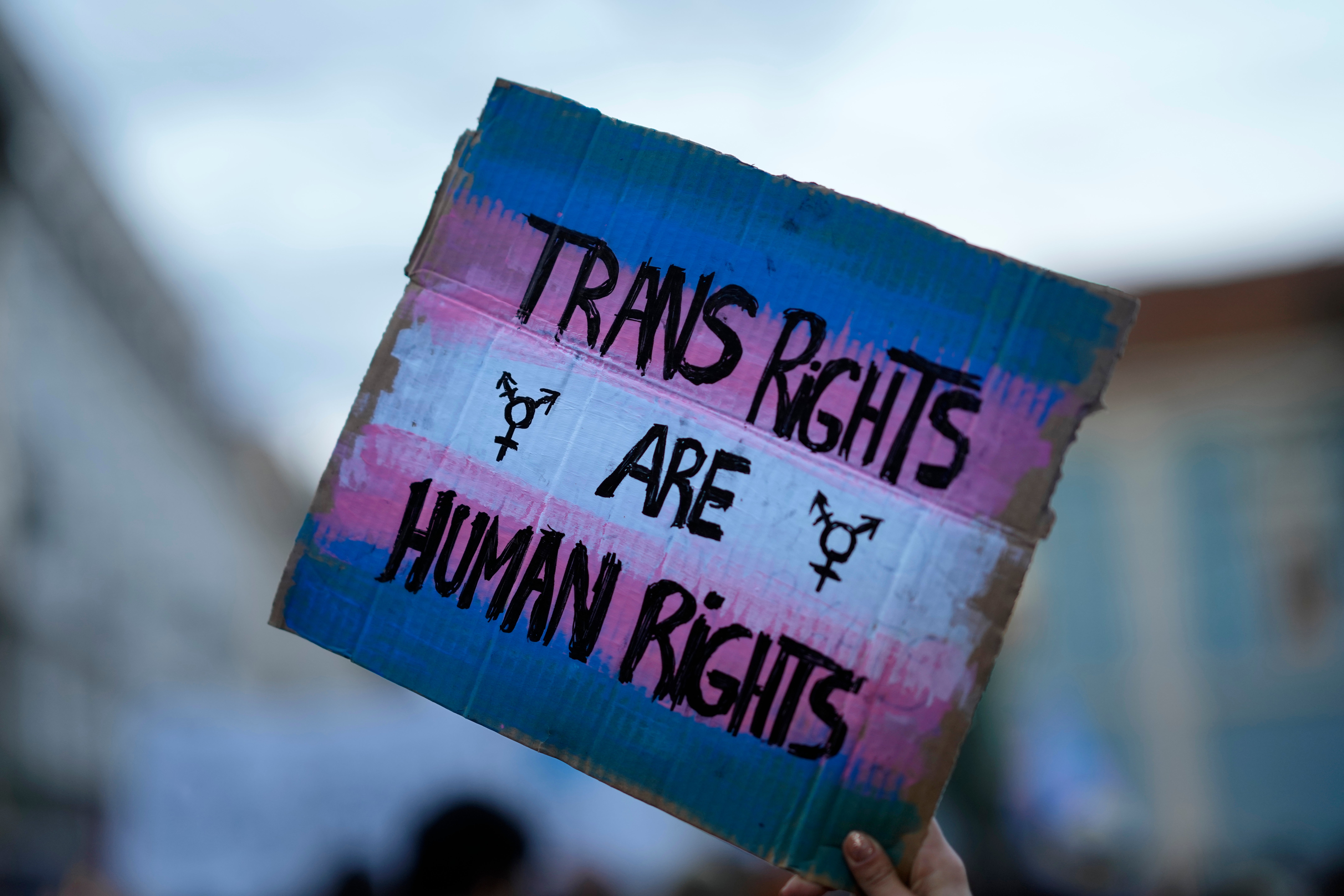Parents like me with trans children know how terrifying this latest political move is
When teachers or other adults out students, they are putting them in danger.


Your support helps us to tell the story
From reproductive rights to climate change to Big Tech, The Independent is on the ground when the story is developing. Whether it's investigating the financials of Elon Musk's pro-Trump PAC or producing our latest documentary, 'The A Word', which shines a light on the American women fighting for reproductive rights, we know how important it is to parse out the facts from the messaging.
At such a critical moment in US history, we need reporters on the ground. Your donation allows us to keep sending journalists to speak to both sides of the story.
The Independent is trusted by Americans across the entire political spectrum. And unlike many other quality news outlets, we choose not to lock Americans out of our reporting and analysis with paywalls. We believe quality journalism should be available to everyone, paid for by those who can afford it.
Your support makes all the difference.Trans youth are facing an onslaught of regressive, punitive bills designed to bully them into silence or punish them if they identify as trans.
One of the most recent is a bill proposed in the Indiana legislature which would force teachers or administrators to notify parents if the student wants to change their “name, attire, pronoun, title, or word to identify the student in a manner that is inconsistent with the student’s biological sex at birth.” Similar bills have been pushed in other states like Arizona and New Hampshire.
These bills are often presented as parental rights bills. The arguments are that parents need and want to know everything their student is doing in school, and that students have to consult with parents before taking a step like changing what they wear or changing their name.
As the parent of a trans teen, I don’t feel like these bills respect me, or my child, or either of our rights.
On the contrary, the bills are designed to encourage school officials to single out, harass, humiliate, and intimidate trans children, LGBT children, and gender non-conforming children. They are a cruel abrogation of the rights of young people. As a parent, how does harming my child protect my rights?
Coming out in a transphobic society is difficult, frightening, and in some cases dangerous. Young people need time and space to come out in their own time. And that includes my daughter, who came out to others before she came out to us.
My wife and I were both well versed in trans issues before my daughter came out. I’d written about them, and my wife (who uses she/her pronouns) eventually came out as nonbinary herself. We were supportive of my daughter before her transition when her female friends helped her make up her face in middle-school, when she took female roles in plays, when she wore dresses in high school, and when she came out as bisexual. We told her on numerous occasions we would support her if she were trans and talked to her about trans and queer issues.
Yet, despite the fact that she was as sure as a child could be that we would react positively when she came out as trans, she still didn’t tell us first. She realized she was trans in her freshman year of high school and talked about it with a couple of friends. One wasn’t that supportive, and she ended up waiting another two years before she really came out to a peer group of mostly trans and LGBT friends during Covid. Then, sometime later, she told us.
Do we wish she’d told us sooner? Sure. We’d have liked to have been able to help sooner, and try to get her resources and health care. And, naturally, parents always want to know what’s going on in their child’s life, which is why you shout questions at them as they’re getting snacks before they scurry off to their room with a grunt.
Even with extremely supportive parents, there are lots of reasons a young person may not be ready to come out. Telling parents may feel like it makes the decision more real. Young people may not want offers of help, however well-meaning, because they can feel like pressure. They may not want to worry their parents. They may just feel more comfortable telling friends first.
For young people with less vocally supportive parents, there are even more reasons to worry about coming out. Parental reactions to the news that their children are trans can be volatile and even violent. LGBT youth are only 5-10% of the youth population, but make up 20-40% of homeless youth because parents force them out of their homes or make their homes unlivable. Trans and nonbinary youth are significantly more likely to be homeless than cis queer youth.
Trans youth also report terrifying rates of parental abuse. 73% of trans adolescents between 14 and 18 reported psychological abuse in one study; 39% reported physical abuse. It simply is not safe for many trans youth to come out to their parents. When trans youth do not come out to their parents, they are often protecting their mental and physical health. When teachers or other adults out students, they are putting them in danger.
Transphobic lawmakers of course want to put trans youth in danger. They hope to frighten them into silence, or help unsupportive parents push them back into the closet. They look with mistrust on parents who want to help their children—which is why Texas is actually using child protective services to investigate parents of trans kids who are deemed too supportive.
My daughter is now 19, a working actor and successful playwright who is spending her gap year working in the industry before she heads to college in the fall. Getting to this point wasn’t easy, but it would have been much more difficult if she’d had to hide who she was at school or worry about the state coming to take her from her parents if she wore dresses out of the house.
During childhood and adolescence, young people figure out who they want to be. They experiment with clothes, with hairstyles, with different friend groups. They explore dating and style; they figure out what nicknames they like and which ones they don’t. And sometimes they explore gender identity. Demanding that every step of everyone’s journey must be rigorously surveilled and policed doesn’t have anything to do with parental rights. It has to do with bigotry, cruelty, and panic.
Parents who care for the health and well-being of their children do not want the state to be weaponized against young people. If you trust your child and they trust you, your child will tell you who they are. Indiana wants to turn the moment when they do into one of hate, suspicion, and fear rather than of love. We shouldn’t let them.
Join our commenting forum
Join thought-provoking conversations, follow other Independent readers and see their replies
Comments